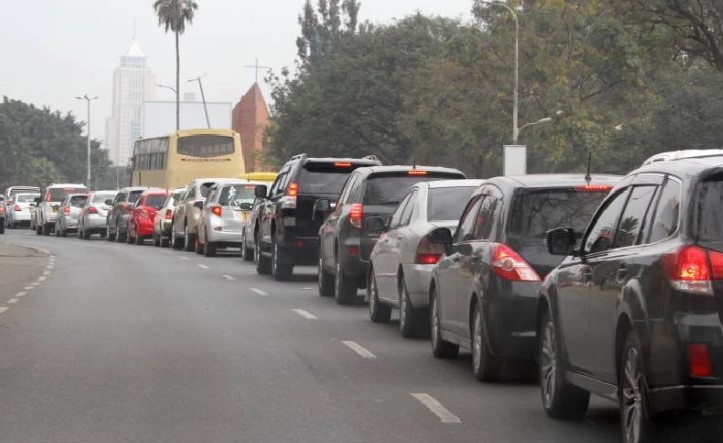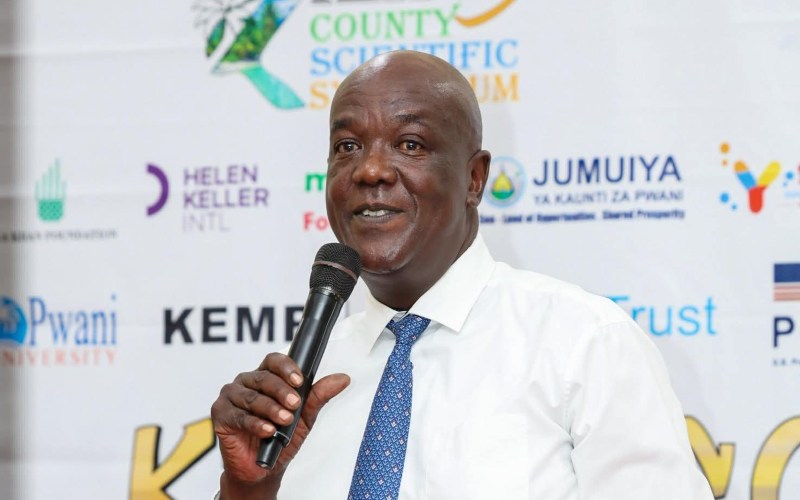State moves to phase out static roadblocks to curb graft, enhance traffic flow

The shift toward mobile roadblocks and electronic surveillance comes amid increasing public discontent over traffic delays and extortion by officers at static roadblocks.
The state plans to phase out most static police roadblocks, aiming to improve traffic flow and curb corruption on the country's highways.
Former Chief Justice David Maraga's task force on police reforms recommended the move, which aims to replace traditional roadblocks with mobile units and electronic surveillance.
More To Read
- DPP urges fast-tracking of traffic reforms amid rise in road offences nationwide
- Five traffic cops nabbed in EACC sting operation over bribery on Kisumu–Busia highway
- Ruto clashes with courts over roadblocks ban, accuses Judiciary of undermining security
- State unveils stringent new traffic law proposals as Alcoblow set for return on Kenyan roads
- Sh3 billion collected in traffic bribes every month - EACC
- New traffic laws target commercial vehicles to curb road crashes
Appearing before the National Assembly’s Departmental Committee on Security and National Administration, Deputy Inspector-General of Police Eliud Lagat confirmed that the National Police Service (NPS) is mapping areas where roadblocks can be removed without compromising security.
"We are mapping out areas where we feel the roadblocks are not needed because the directive is that we don’t need them unless they are for security patrols," Lagat stated, highlighting that unnecessary roadblocks and traffic bases are already being minimised or disbanded.
The shift toward mobile roadblocks and electronic surveillance comes amid increasing public discontent over traffic delays and extortion by officers at static roadblocks.
Narok West MP Gabriel Tongoyo said the roadblocks are like toll stations where officers demand bribes.
"Traffic police are extorting Kenyans at the roadblocks, turning them into toll stations," Tongoyo said, calling for a system that maintains security without burdening the public.
These reforms build on a directive from President William Ruto in July 2023, when he called for the elimination of static roadblocks to facilitate smoother traffic flow and address growing corruption issues.
Automated traffic management
In support of this initiative, former Interior Cabinet Secretary Kithure Kindiki gave a deadline of November 1, 2023, for the removal of these roadblocks, signalling a shift toward automated traffic management.
“We need to reduce the number of police officers standing on the road the whole day. This can only be achieved by introducing camera facilities on our roads so that we can reduce what traffic police can do,” Kindiki stated last year.
He outlined plans to deploy electronic surveillance techniques that would minimise police presence on roads and shift to a system where technology plays a larger role in traffic management.
"The surveillance will be mainly electronic, not a policeman opening your car," Kindiki added, emphasising the government's intention to modernise traffic oversight.
The government intends for patrol units and digital monitoring to manage the majority of road checkpoints, while some static roadblocks will remain in high-crime areas to combat terrorism and cross-border crime.
“Someone can travel to London and back before an individual from Malaya gets to Nairobi. This is because of the unnecessary roadblocks,” Saku MP Dido Raso said.
The National Police Service Commission, represented by chairperson Eliud Kinuthia, is also in discussions about eliminating traffic police from non-security checkpoints.
"It is possible to do away with a majority of the traffic police officers and automate the process," Kinuthia noted, signalling a future where technology will replace officers in monitoring and enforcing road safety.
Top Stories Today












































